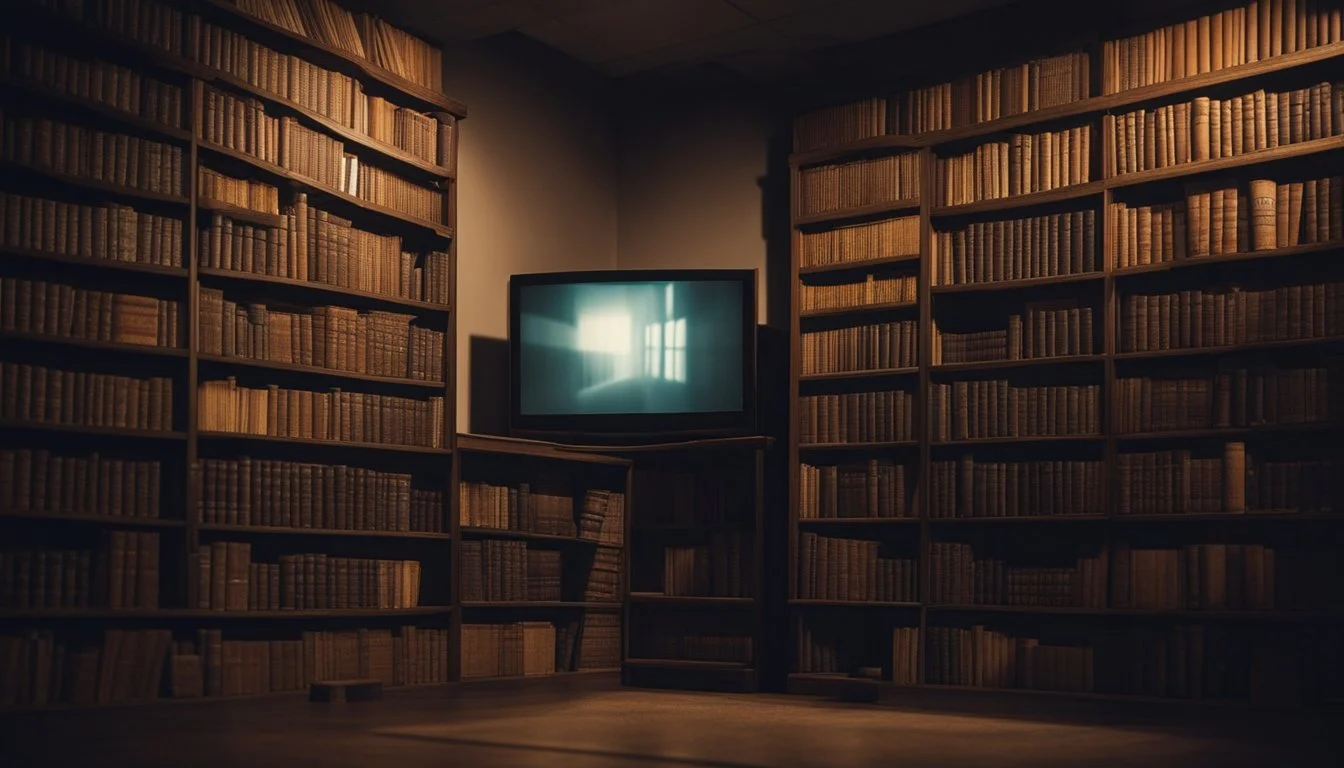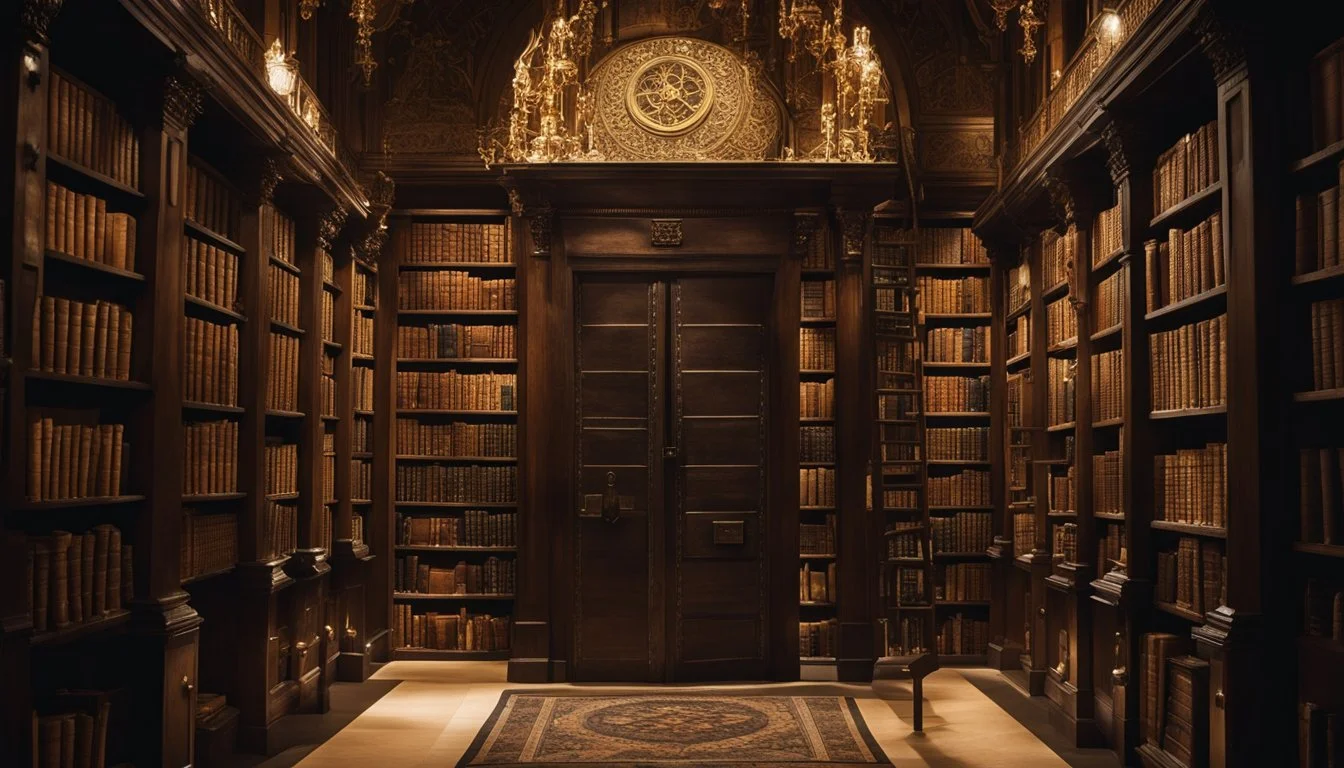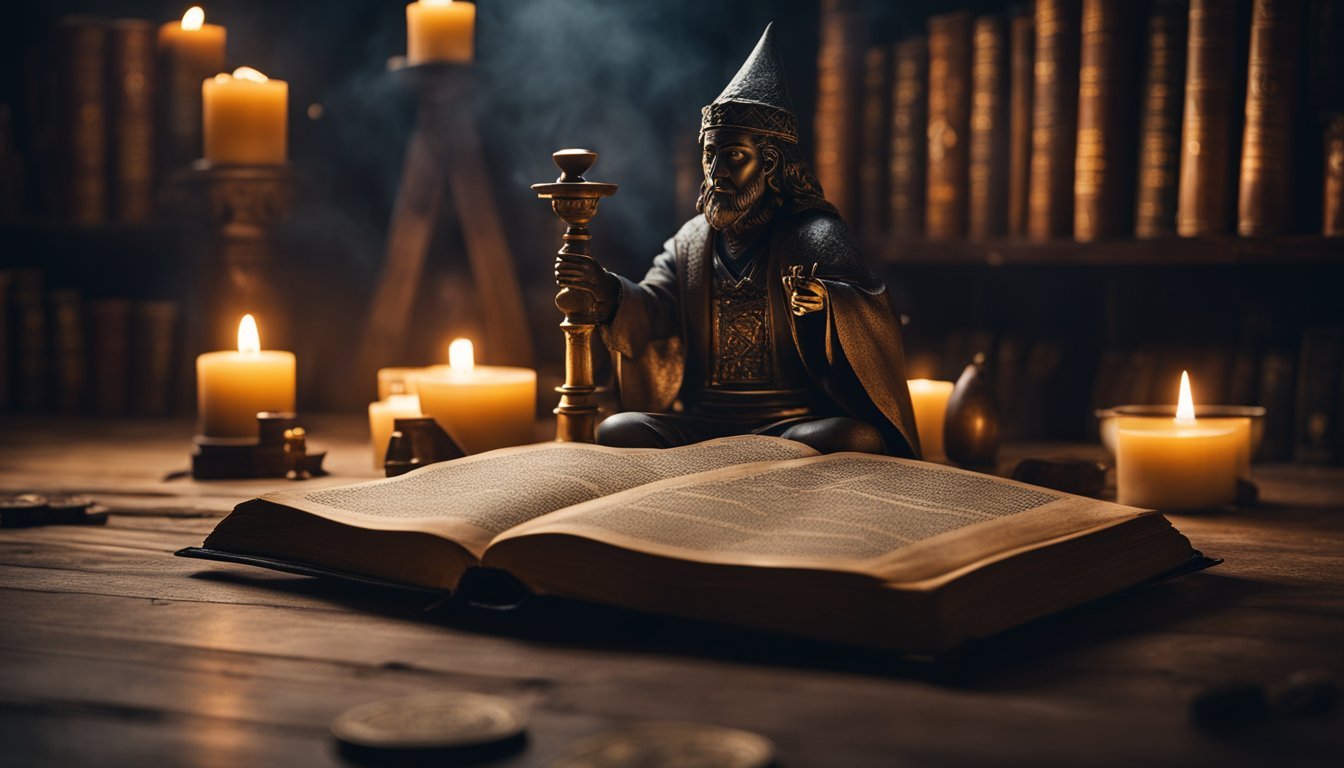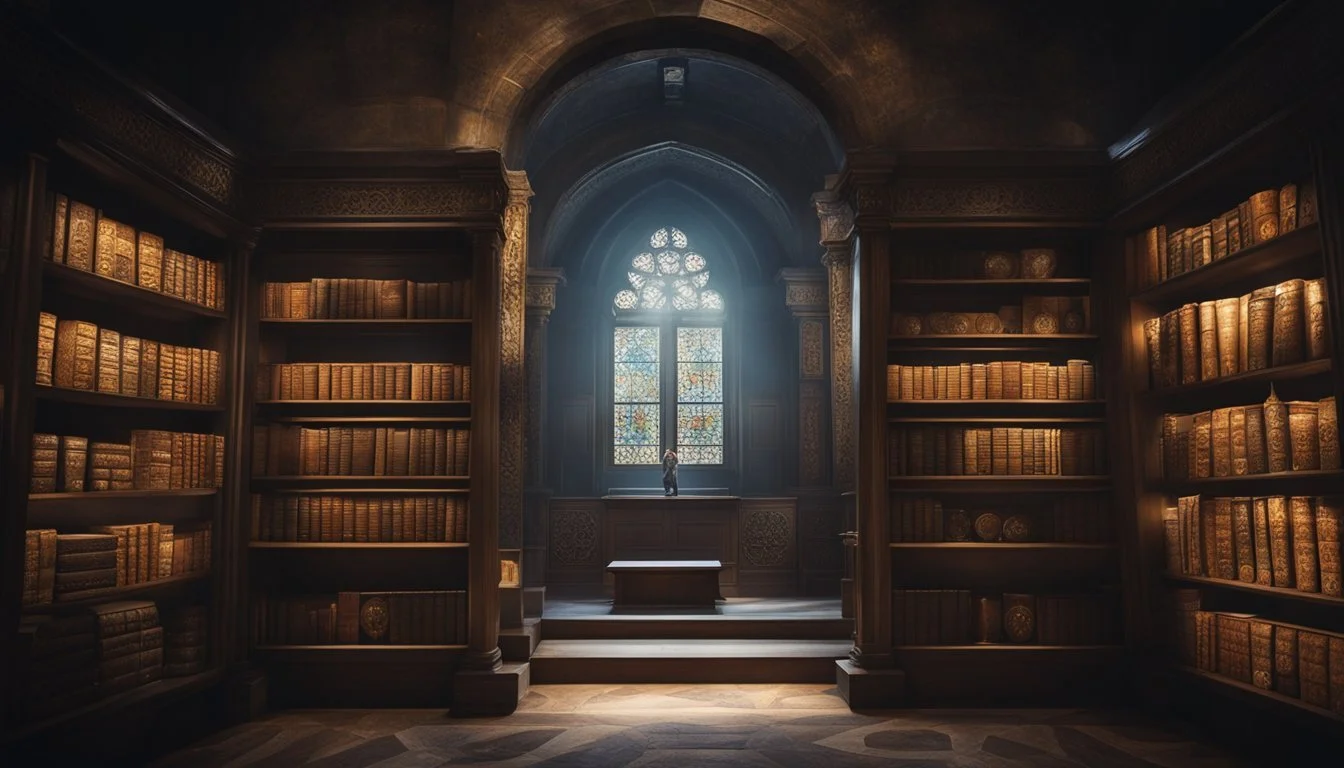8 True Crime Documentaries About Esoteric Christianity
Unveiling Hidden Mysteries
True crime documentaries have captivated audiences for years, shedding light on lesser-known facets of human behavior and belief systems. Among these, esoteric Christianity holds a unique place, blending mysticism with religious dogma and often intersecting with crime and controversy.
What makes true crime documentaries about esoteric Christianity particularly compelling is their exploration of secretive groups and rituals that challenge mainstream religious practices. By unraveling these hidden layers, these documentaries offer a window into the intriguing and sometimes dark world of esoteric Christian communities.
1) The Secret History of Esoteric Christianity
Esoteric Christianity refers to a mystical and inner tradition within Christian practice. It emphasizes personal experience of the divine and seeks deeper spiritual knowledge of Christian teachings.
Rooted in early Christian thought, esoteric practices often involved contemplative and meditative activities. These methods were intended to bring followers closer to God.
During early Christianity, certain teachings were reserved for inner circles. These were believed to contain deeper spiritual insights compared to the public doctrines.
In medieval times, mystics such as Meister Eckhart and Hildegard of Bingen conveyed esoteric messages through their writings. Their focus was on achieving divine union through personal transformation.
One significant influence on esoteric Christianity was the Hermetic tradition. It introduced concepts such as the divine nature of humanity and the possibility of spiritual ascent.
Throughout history, esoteric Christianity has adapted and evolved. Modern movements continue to explore these ancient teachings, blending them with contemporary spiritual practices.
For more information, visit the Wikipedia page on Esoteric Christianity.
2) Mysteries of the Rosicrucian Order
The Rosicrucian Order, or the Order of the Rose Cross, is wrapped in layers of secrecy and mysticism. It is considered a community of mystics who study and practice metaphysical laws of the universe. The true origins are tied to the mystery schools of ancient Egypt. These schools explored the secrets of the universe and nature.
In the early 17th century, three anonymous manuscripts about Rosicrucianism surfaced in Germany. The most notable of these was the Fama Fraternitatis Rosae Crucis, which dates back to 1614. These documents introduced the story of the enigmatic founder of the Rosicrucians.
The modern Rosicrucian Order, known as AMORC, continues to combine traditional and chronological histories. The traditional history is filled with mystical allegories and legends that have been passed down through the centuries. Chronicles based on specific dates and verification provide more concrete points of reference.
For those interested in esoteric Christianity, understanding the Rosicrucian Order helps to grasp how ancient metaphysical beliefs and practices were intertwined with the Christian tradition. Their teachings cover a range of esoteric topics, including reincarnation and metaphysical laws governing the universe.
Learn more about this fascinating society by exploring historical documentaries and writings that delve into their enigmatic world. For more information, visit Wikipedia.
3) Exploring Gnostic Roots in True Crime
True crime documentaries often uncover hidden beliefs and practices. When it comes to stories entwined with Gnostic beliefs, they provide a unique lens to examine human behavior and history.
The documentary "The Keepers" (2017) delves into the unsolved murder of Sister Cathy Cesnik. Her death is linked to cover-ups involving the Catholic Church. Some aspects reflect Gnostic themes of hidden knowledge and the struggle against corrupt powers. More Info
Another intriguing case is "Holy Hell" (2016), which narrates the story of a charismatic leader of a spiritual group. The film explores manipulation and hidden truths within the sect, echoing Gnostic themes of enlightenment and deception. More Info
"Ancient Aliens" (2009) may not be exclusively a true crime docuseries but explores historical mysteries, some linked to Gnostic themes. The show examines esoteric teachings and hidden histories, reflecting the Gnostic pursuit of secret knowledge often obscured from mainstream understanding. More Info
4) Veil of Templars: Uncovered Histories
"Veil of Templars: Uncovered Histories" explores the hidden facets of the renowned Knights Templar. This documentary delves into the religious and esoteric traditions surrounding the Templars, revealing their significant influence on medieval Christendom.
Viewers are taken on an investigative journey through secret rites and alchemical practices believed to be utilized by the Templars.
The series showcases the Templars' foundational belief in gnosis, as highlighted by hosts Timothy Hogan and Scott Wolter. It spans faiths and continents, tracing the order's impact from Europe to the Middle East.
Key elements include their supposed involvement in the pursuit of alchemical wisdom and their potential knowledge of spiritual metaphors. The documentary emphasizes the blend of science and mysticism that characterized their practices.
Timothy Hogan and Scott Wolter present detailed examples of the Templars' rituals, traditions, and their lasting legacy.
For more information, visit the entry on IMDb The Secret Story of the Knights Templar (2021).
5) Alchemy and Heresy in Renaissance Europe
The Renaissance period in Europe saw a burgeoning interest in alchemy and mystical practices, which were often viewed with suspicion by the Catholic Church.
Many alchemists sought to transform base metals into gold and to discover the elixir of life. Their secretive nature and esoteric texts led to accusations of heresy.
Some notable alchemists and mystics, such as Paracelsus and Giordano Bruno, were persecuted. Bruno, in particular, was burned at the stake for his radical ideas challenging the Church's teachings.
Alchemy was not merely about material transformation; it often had spiritual connotations, intertwining with religious and mystical beliefs. This dual pursuit of material and spiritual enlightenment was seen as dangerous and heretical.
Documentaries exploring this era often highlight the tension between scientific exploration and religious orthodoxy, showcasing how figures of the time navigated these treacherous waters.
For more information on this topic, check out The Story of Alchemy and the Beginnings of Chemistry (1910).
6) Dark Secrets of the Cathars
The Cathars were a Gnostic Christian group that thrived in the Languedoc region of southern France during the 12th and 13th centuries. Known for their ascetic lifestyle and beliefs, they stood in stark contrast to the doctrines of the Roman Catholic Church.
One of the major beliefs of the Cathars was that the material world was inherently evil, created by a malevolent god. This dualistic belief led them to reject the sacraments and the Church's authority, earning them the label of heretics.
The Cathar's popularity and spread eventually led to the Albigensian Crusade, launched by Pope Innocent III in 1209. This brutal campaign aimed to eradicate the Cathar heresy and resulted in widespread massacre and destruction in the region.
Catharism also propagated a unique clergy known as "Perfecti," who lived lives of severe austerity, avoiding marriage, meat, and other worldly indulgences. Their dedication and piety gained them considerable respect and followers.
Inquisition records reveal the harsh methods used against the Cathars, including torture and execution. Despite this, some Cathar beliefs and practices continued underground, influencing later spiritual movements.
For more insight into the Cathars, consider watching "Secret Files of The Inquisition. The Cathar Heresy" (2006) PBS.
7) Hidden Codes in Christian Texts
The fascination with hidden codes in religious texts has long captivated scholars and enthusiasts. These codes are thought to contain deeper, often mystical meanings.
Esoteric Christianity looks beyond the literal interpretation of the Bible. Followers often seek symbolic and allegorical meanings within the scriptures.
Christian Gnosticism also explores these hidden layers. Gnostics believed that divine knowledge was concealed within sacred texts.
Documentaries on this topic often delve into methods used to uncover these codes, such as gematria—a Jewish system of assigning numerical value to a word or phrase.
Another common theme is the relationship between hidden codes and prophecies. Believers argue that these codes offer insights into future events.
A notable film is "The Bible Code" (1999), which explores the idea that the Bible contains secret predictions about historical and future events. IMDB Link
8) The Lost Gospels Conspiracy
"The Lost Gospels" documentary (2005) is an exploration presented by Anglican priest Pete Owen Jones. It investigates various ancient Christian texts not included in the New Testament. These texts present alternative narratives, such as Jesus not dying or taking revenge on his enemies.
The documentary reveals significant insights into the diversity of early Christian beliefs.
Viewers are introduced to texts like the Gospel of Thomas and the Gospel of Mary Magdalene. These writings challenge the traditional understandings of Jesus' life and teachings. The film examines why these gospels were excluded from the canonical Bible.
Jones delves into the potential reasons behind their exclusion, such as doctrinal conflicts and political motivations.
The film does not claim a systematic conspiracy by the orthodox church to suppress these texts. Instead, it provides a nuanced look at the complex process of canonization. The documentary encourages viewers to consider the broader context of early Christianity and to think critically about the formation of the New Testament.
For more information on "The Lost Gospels" documentary, visit IMDb.
Understanding Esoteric Christianity
Esoteric Christianity involves a mystical approach to the traditional Christian faith, focusing on deeper, often hidden spiritual truths. It connects historical roots with core beliefs, such as meditation and mystical practices.
Historical Background
Esoteric Christianity traces its origins to early Christian teachings. It incorporates elements from Hermeticism and Gnosticism. This approach emphasizes "inner" understanding, with roots in Greek tradition.
These mystical traditions feature secret doctrines. Initiation rituals were essential. They enabled deeper comprehension of the divine. Historical texts show that these teachings evolved alongside mainstream Christianity, often in opposition.
Gnostic texts, like the Nag Hammadi library, reveal esoteric interpretations of canonical stories. Such texts provided alternative views on spiritual enlightenment.
Core Beliefs and Practices
The core of Esoteric Christianity lies in mystical practices. Meditation, contemplation, and energy work are fundamental. These practices aim to deepen the connection with the Divine.
Practitioners seek higher consciousness levels. Secret traditions often involve symbolic meanings.
Energy work, such as working with chakras, is common. These practices aim at personal transformation and spiritual growth.
Emphasizing inner experiences, Esoteric Christianity goes beyond surface-level religious practices. It's about seeking profound personal and spiritual change. This approach offers an alternative path within the larger Christian faith.
True Crime And Esoteric Christianity
True crime documentaries intersect with the lesser-known world of esoteric Christianity. This section delves into notable cases and explores the legal and ethical issues involved.
Notable Cases
"The Order of the Solar Temple" is a prime example where true crime and esoteric beliefs intersect. This cult, influenced by esoteric Christianity, was behind the murders and mass suicides in the 1990s. The leaders claimed divine guidance and incorporated Christian mysticism, leading to tragic outcomes.
Another case is "The Ant Hill Kids", led by Roch Thériault. Blending Christian doctrine with his deviant interpretations, Thériault manipulated his followers into committing heinous acts. The group's practices raised serious concerns about the misuse of religious beliefs in criminal activities.
These cases highlight how esoteric Christian beliefs can, in extreme situations, be twisted into justifying criminal behavior.
Legal and Ethical Issues
The legal system often grapples with crimes rooted in esoteric Christianity. Prosecutors must differentiate between genuinely held religious beliefs and criminal actions disguised as spiritual practices. This distinction is crucial for fair trials and just sentencing.
Ethically, the manipulation of religious teachings for personal gain or control poses significant concerns. Victims are often vulnerable individuals seeking spiritual enlightenment. Protecting these individuals requires a delicate balance of respecting religious freedom and enforcing laws against abusive practices.
Cases involving esoteric Christianity also raise important issues about freedom of religion, coercion, and mental health. These cases underscore the need for ongoing discussion about how to best handle religiously influenced crimes in a legal context.










